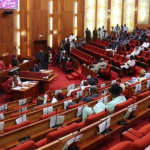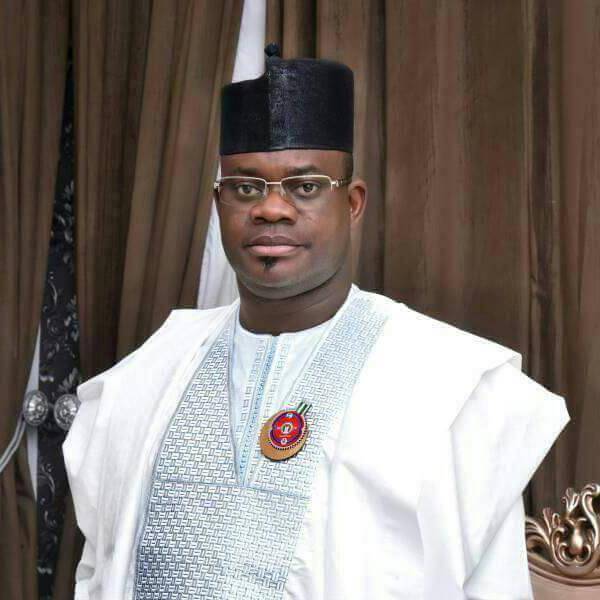
FELIX NWANERI writes on the eight-year tenure of Governor Yahaya Bello of Kogi State, which comes to an end tomorrow, achievements of his administration, which according to him would be leveraged on by his successor to take the state to a higher pedestal
As Kogi State governor, Yahaha Bello, hands over to his successor, Usman Ododo, tomorrow, there is no doubt that he has been able to navigate the murky waters of politics and weathered the storm associated with the power game during his eight-year tenure. Bello’s journey to the Kogi State government house was by fate. He made history on January 27, 2015 as the first person from a minority ethnic group of the state to occupy the historic Lugard House. He is Ebira of Kogi Central Senatorial District. Before then, the Igala people of Kogi East Senatorial District have had enough of power, having ruled the state since it was created in 1991. Kogi State comprises the people of Kabba province of Okun and Ebira; Igala and Bassa speaking parts of old Benue State.
The Igala and Bassa formed the Eastern Senatorial District; Ebira and Ogori-Magongo formed the Central Senatorial District, while the Okuns, Kotos and Hausa-speaking part of Lokoja formed the Western Senatorial District. There is a claim of an agreement reached by elders and political stakeholders of the state in 1991 on a power sharing formula that will see the governorship rotating among the three senatorial zones, but the Igala, who constitute about 45 per cent of the total population of the state held on to power for more than two decades.
First term
Bello’s emergence as governor for the first term would not have been possible if not for the demise of his party’s (APC) candidate – Abubakar Audu – in the November 21, 2015 governorship election in the state. The former two-time governor (1992- 1993 and 1999-2003) was coasting to victory, when he passed on. The unfortunate incident almost triggered a constitutional crisis as the 1999 Constitution (at the time) did not envisage such situation. The impasse over the incident was however resolved, when the Independent National Electoral Commission (INEC) directed the APC to nominate another candidate as Audu’s substitution for the December 5, 2015 supplementary poll in the 91 polling units, where elections were cancelled.
The electoral body had declared the election inconclusive midway during collation and announcement of results, following the cancellation of results in the affected polling units due to incidences of violence, ballot boxes snatching, over voting, among others. Late Audu was at the time leading his closest rival and then incumbent governor, Capt. Idris Wada, by 41,000 votes, whereas the total number of registered voters in the 91 polling units was 49,953, a figure, the commission explained, was higher than the margin between the top contenders.
The window to substitute Audu, rather than serve as a relief to the APC, sparked off another round of crisis as the then deputy governorship candidate, Hon. James Faleke, wrote to INEC that he should be declared winner on the ground that the supplementary poll was needless as the number of eligible voters in the affected areas stood at 25,000 and so will not make any impact in the overall result. The PDP, on its part, urged the electoral body to declare its candidate –Wada, winner of the election as the votes garnered by Audu were not transferable. The party further argued that Audu’s votes died with him. INEC, however, insisted on going ahead with the supplementary poll and the APC was left with no other option than to nominate the first runner up in its governorship primary election, Bello as Audu’s substitution.
As expected, Bello was declared winner of the governorship election after the supplementary poll. His party (APC) garnered 6,885 votes to bring its total votes to 247,752, having polled 240,857 in the first round of voting. The PDP candidate (Wada) scored 5,363 to take his total votes to 204,877 votes. He had earlier garnered 199, 514 votes. It was message of hope in 2015, when Bello first mounted the saddle as governor of Kogi State. He then promised the people of taking the state to the next level. “By the grace of God I would have no reason not to perform excellently. After four years, Kogi State will never be the same again. Expectations are high, and we know there are challenges out there, but we are going to move in aggressively to ensure we do well,” he said. Among his strategies was reorganization of the state civil service to make it more efficient and productive, which he did despite resistance from some stakeholders. The exercise revealed thousands of ghost workers on the state’s payroll.
Second term
Bello was re-elected during the November 16, 2019 governorship election in the state. He defeated the candidate of the PDP, Engr. Musa Wada in the election that served as a test of might for the ruling APC and main opposition PDP after the 2019 general election. Bello polled a total of 406,222 votes against Wada’s 189,704 votes. While Natasha Akpoti of the Social Democratic Party (SDP) came a distant third with 9,482 votes. However, Bello was yet to mark the first year of his second term, when calls started coming from political circles to join the race for the 2023 presidency. Many had thought that the move to draft the governor into the presidential race was a dummy to test the political waters ahead of the 2023 general election and make him relevant in the scheme of things, but developments later showed that the campaigners meant business.
While the 2023 presidential race is now history, there is no doubt that Bello warmed himself into the hearts of many Nigerians, particularly youths, with his governance style that ensured inclusiveness of all sections of kogi State. He once spoke on the issue: “Our sitting arrangement in the cabinet is mixed, that is where it starts from. We ensure that whatever touches one, touches all, whether good or otherwise. We solidarize and sympathise with one another, we are the ones citizens of Kogi State are looking up to, how we conduct ourselves from the seat of power matters a lot and that is how it trickles down to the grassroots. “We ensure that even those who are said not to be from the state originally are part and parcel of the traditional council process. If you are an Igbo man, Yoruba man, the so-called non-indigenes, or a Fulani man, everybody is represented in my government and in the traditional councils as well as any form of organisation or association in Kogi State.
“I also ensure there is an equitable distribution and utilization of resources that are available to us in Kogi State. You can never see any senatorial district or local government in Kogi State that has more than the other in terms of infrastructure. We ensure balancing in our decision-making, starting from budgetary provisions to execution. “Even in the civil service; we discovered that a particular local government is loaded with permanent secretaries, while some have very little or none. We ensured that we balanced it, and now, it is evenly distributed among the local governments and state constituencies and nobody has an issue with that. “We ensure that once you are appointed, you do your job, and if you don’t, you have to be replaced. A replacement will come from where the original person was appointed from.
That is how we ensure balancing, and of course, that is the culture today in Kogi State.” The governor equally spoke on how he ran the economy of Kogi State. He particularly explained how he was able to reduce the debt burden of the state, saying the magic wand was prudent management of resources. According to him, “what we did on coming on board was to ensure that we reduced or eliminated wastage as well as ensured that we work with the essentials and ensure that the resources are judiciously utilized.” On security, he said that Kogi State used to be the crisis capital of this country before his administration came on board. He, however, noted that “today, the reverse is the case. One of the key elements of this widely talked-about achievement was that I refused to politicize the security of the state.”
Self-assessment
Bello believes that he has laid the foundation on which his successor will build to take the state to greater heights. He not only boasts of having employed more workers than the previous administrations put together did, but also reduced poverty more than the previous administrations did. On how he achieved these, he explained: “We ensured that all those unintended beneficiaries on our payroll were weeded off. That made more resources available for us. In fact, my administration has made more millionaires in Kogi State than the previous administrations put together did by way of empowering our people, teaching them how to fish and not necessarily giving them fish.” He added: When I assumed office, the IGR (Internally generated revenue of the state was within a paltry sum of N250 million and N300 million.
The state Internal Revenue Service was operating from a two-bedroom office. Of course, accountability and mobilization were issues then, so we sat down and reviewed the situation we met on ground. We blocked all the loopholes hence one of the reasons for the hues and cries then. Secondly, we ensured that we expanded the tax net and the revenue base of the state. “There were so many revenue sources that were not harnessed before then. We also made use of legislations because there were no rules and regulations that governed revenue generation in Kogi State before we came on board. But we came up with several legislations to ensure that people pay their taxes and that tax deductions from civil servants and political office holders were remitted to the coffers of both the state and federal government.
These interventions by my administration are the reasons why the state’s IGR jumped from N300 million to N1.5 billion monthly “Since 1992, when the state was created, there have been issues of salary arears, pension arrears, percentage payment of salaries of local government and state workers. It was worst during the time of my immediate predecessor, when sometimes, three months salaries were combined to pay just 10 per cent of salaries of workers. We have the records. “When we came, we inherited four months arrears of salaries of state workers and up to 14 months of local government workers. So, we decided to draw the line on the issue of payment of salaries and we started from when I inherited the state – January 27, 2016. Go to the various states in the North; you will out that none of them is paying higher than what is obtainable in Kogi.”
Bello, who spoke late last year on how he wants to be remembered by the time he leaves office, declared: “There is nobody who has occupied office that wouldn’t want to do one thing or the other but what is important is: Am I satisfied with my achievements and successes? I thank God Almighty for all I have achieved given where I met Kogi State and where I have taken it to. No government can solve all the problems 100 per cent, but I thank God for my successes so far and commitment. My belief is that Usman Ododo will build on the foundation I have laid in Kogi State.”
You may be interested
Arsenal To Offer Kiwior In Swap Deal For Super Eagles Star
Webby - December 28, 2024Arsenal are reportedly considering a January move for AC Milan Nigerian international Samuel Chukwueze as Mikel Arteta eyes cover for…

No Club Is Superior To Us –Inter Milan Striker, Thuram
Webby - December 28, 2024Marcus Thuram has said there’s no team superior to Inter Milan as the Serie A giants strike fear into oppositions.The…

Nigeria Vs Ghana Live Blogging – CHAN 2024 Qualifier, Second Leg
Webby - December 28, 2024Completesports.com’s live blogging of the CHAN 2024 Qualifying match between the Super Eagles B of Nigeria and the Black Galaxies…



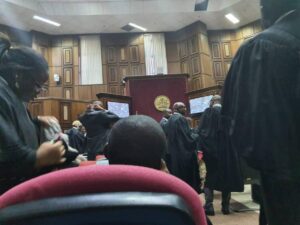
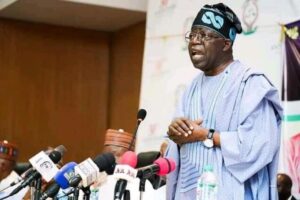



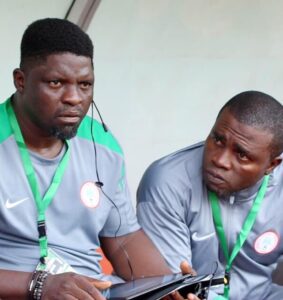


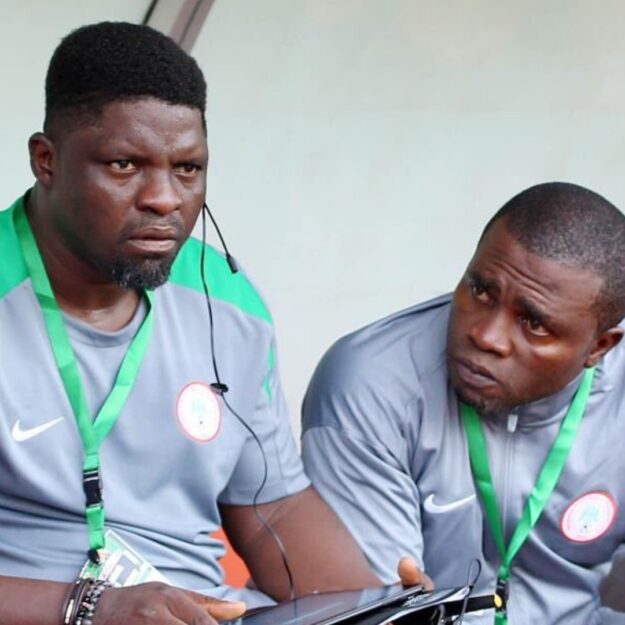







![American Pastor, David Wilson Seen Eating The Box Of Woman Who Isn’t His Wife [Video]](https://onlinenigeria.com/wp-content/uploads/2019/10/american-pastor-david-wilson-seen-eating-the-box-of-woman-who-isnt-his-wife-video-150x150.jpg)








